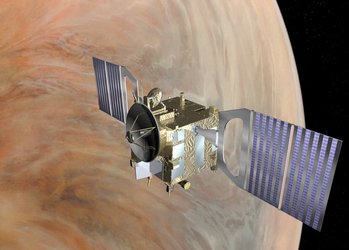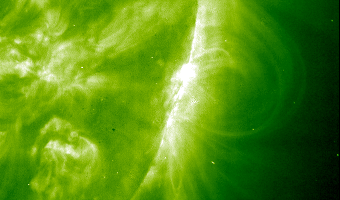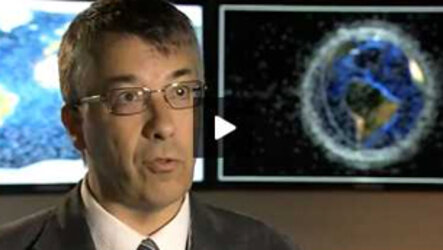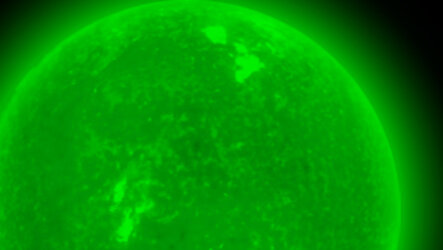Eyes on our Sun: ESA opens new space weather centre in Brussels
This week, ESA opened a new Space Weather Coordination Centre to gather up-to-date information on our Sun. It is the first such data coordination centre opened under the Agency’s Space Situational Awareness Programme.
The new Space Situational Awareness (SSA) Space Weather Coordination Centre (SSCC) will serve as the central access point to a portfolio of European space-weather expertise for customers, including satellite operators, industrial sectors including telecommunications and navigation, and government agencies and research institutes.
Located at the ‘Space Pole’ in Brussels, the centre was formally inaugurated on 3 April by Philippe Mettens, Chairman of the Belgian Science Policy Office, and Thomas Reiter, ESA Director of Human Spaceflight and Operations.
The two were joined by Ronald Van der Linden, Director General of the Royal Observatory of Belgium, Nicolas Bobrinsky, Head of ESA’s SSA Programme Office, and Michel Kruglanski, manager of the SSCC from the Solar–Terrestrial Centre of Excellence.
Europe’s first operational space weather centre

The SSCC includes the first European space weather helpdesk and, through this, rapid access to expert support on solar weather, ionospheric weather, the geomagnetic environment and the orbital radiation environment.
“With the SSCC inauguration, our SSA Programme is taking concrete steps to develop a European capability to operationally monitor space weather, enhance international cooperation and establish the effective distribution of information, warnings and alerts to users in economically vital sectors,” said Thomas Reiter.
“The SSCC will help to get the right information to the right people at the right time.”
The inauguration took place at the Royal Observatory Belgium (ROB), one of the four members of the consortium that will operate and develop the SSCC on ESA’s behalf. The others are the Belgian Institute for Space Aeronomy and two industrial partners, Space Applications Services SA/NV and Spacebel SA/NV.
“The SSCC is the first operational implementation of the long-standing space weather expertise developed here and at our partner institutes and industry,” said Ronald van der Linden of the ROB.
“We look forward to working with organisations across Europe to gather data, share information and enhance our ability to know in real time how the Sun is affecting Earth.”
SSCC gathers data and delivers information

The SSCC itself is a dedicated control room where operators monitor the Sun, the space environment and the Earth environment for early detection of possible effects of space weather phenomena on vital infrastructure and activities.
“The SSCC is being networked with a series of Expert Service Centres (ESCs) located throughout Europe, each providing specialised space weather data from one or more categories including solar weather, ionospheric data, space radiation, geomagnetic conditions and heliospheric weather,” said Michel Kruglanski, SSCC Manager.
In Europe’s modern economy, numerous sectors can potentially be affected by space weather.
“These range from space-based telecommunications, broadcasting, weather services and navigation through to power distribution and terrestrial communications,” said Juha-Pekka Luntama, Head of Space Weather activities at ESA’s SSA Programme office.
“In the recent past, space weather has damaged or destroyed spacecraft, caused power blackouts affecting millions and disrupted crucial telecommunication services. Our new SSCC is a crucial first step in helping avoid these in the future.”
ESA is also preparing to inaugurate a new Near-Earth Object Data Centre at ESRIN, Italy, next month.















 Germany
Germany
 Austria
Austria
 Belgium
Belgium
 Denmark
Denmark
 Spain
Spain
 Estonia
Estonia
 Finland
Finland
 France
France
 Greece
Greece
 Hungary
Hungary
 Ireland
Ireland
 Italy
Italy
 Luxembourg
Luxembourg
 Norway
Norway
 The Netherlands
The Netherlands
 Poland
Poland
 Portugal
Portugal
 Czechia
Czechia
 Romania
Romania
 United Kingdom
United Kingdom
 Slovenia
Slovenia
 Sweden
Sweden
 Switzerland
Switzerland




































